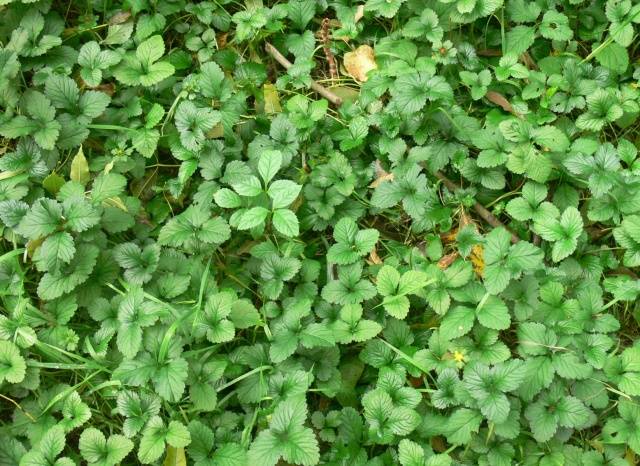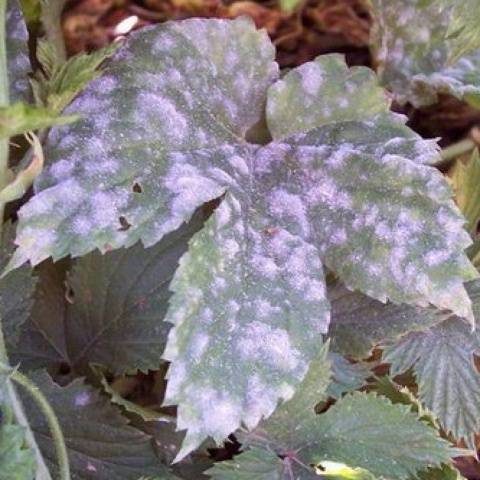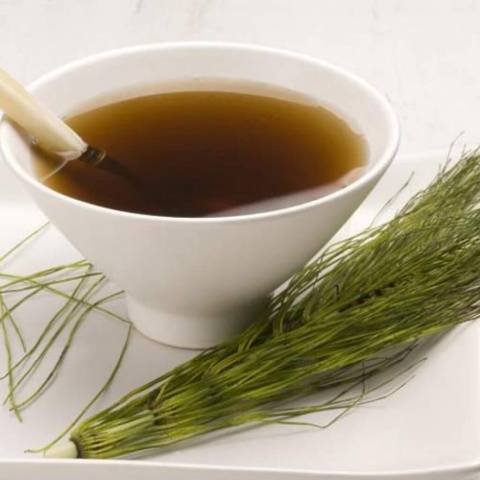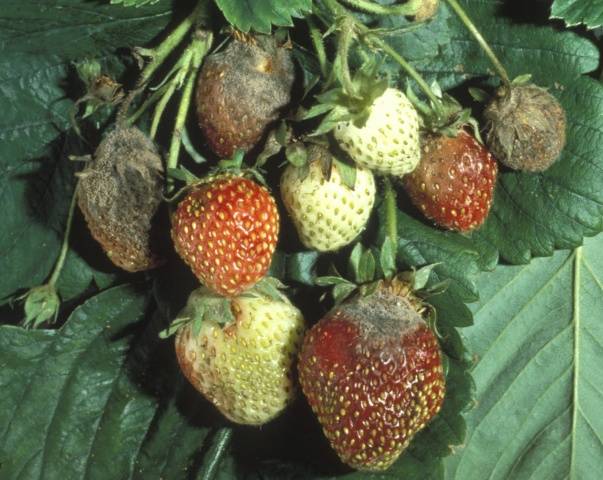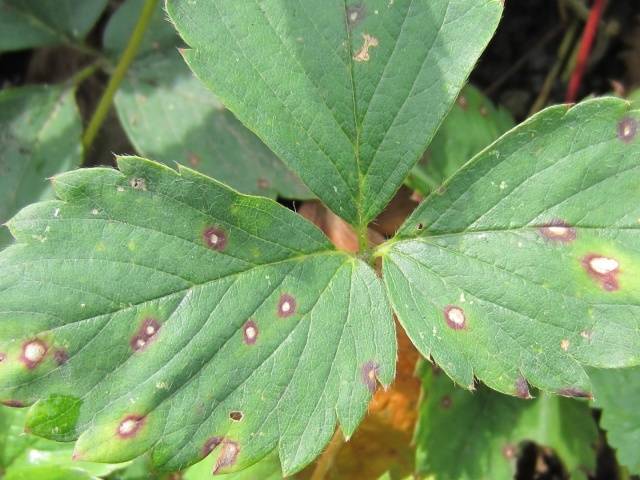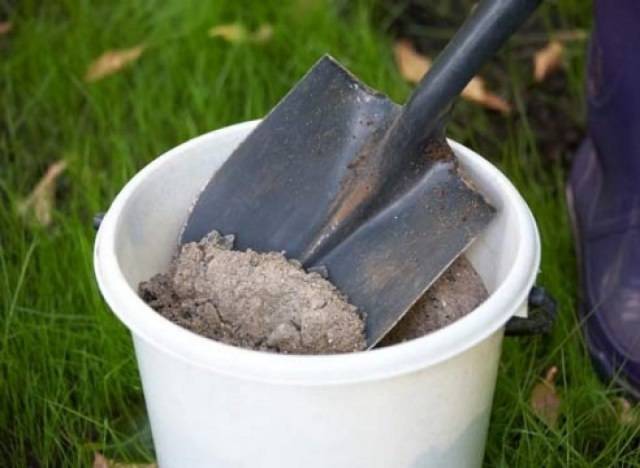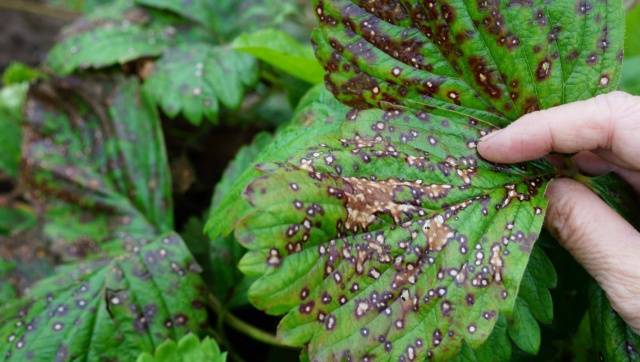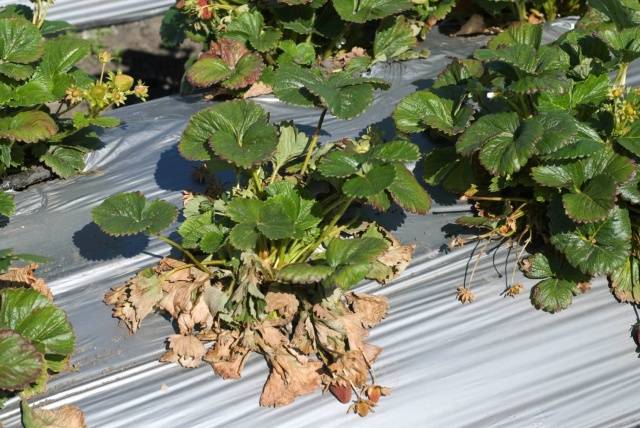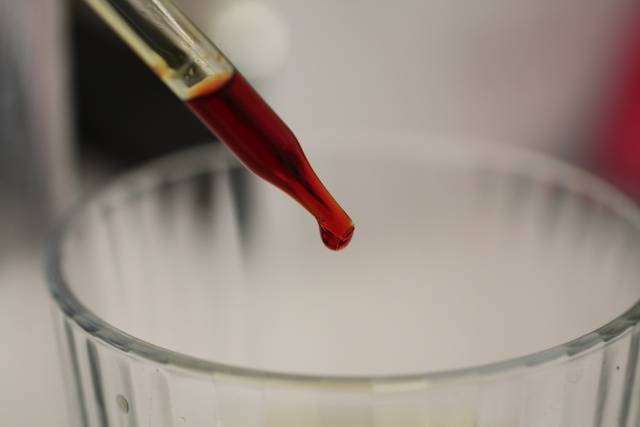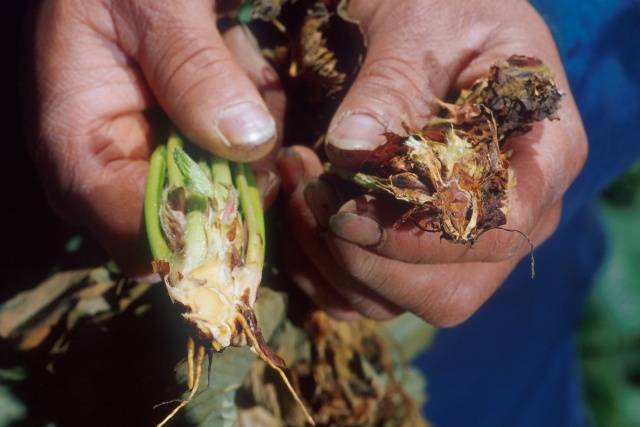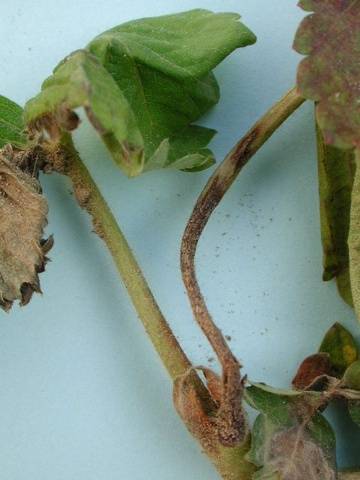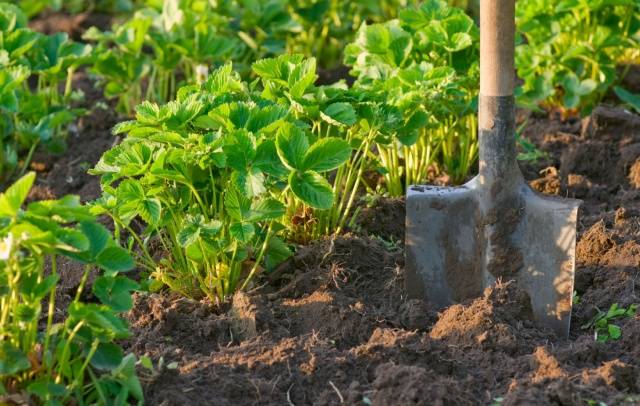Content
Diseases negatively affect plant development and reduce yields. If measures are not taken in a timely manner, the strawberry may die. Folk remedies for strawberry diseases can eliminate the source of damage, disinfect soil and plants.
Causes of the appearance of strawberry diseases
Most diseases are caused by fungal spores. Their distribution occurs when warm weather and high humidity are established.
The following factors contribute to the development of strawberry diseases:
- non-compliance with the rules of crop rotation;
- excess moisture;
- too thick planting of strawberries;
- lack of care, timely trimming of whiskers and leaves;
- spread of disease with strawberry pests;
- the wrong choice of a place for planting (plants receive little sunlight, are in the shade most of the day).
Strawberry diseases
The advantage of folk remedies is their environmental friendliness, safety for humans and plants. For the preparation of solutions, available and inexpensive components are used. The products are used for spraying leaves or watering at the root. Below are the main diseases of strawberries and the fight against them using folk methods.
Powdery mildew
This disease is fungal in nature and is diagnosed as a white bloom on the leaves, shoots, fruits and petioles of strawberries. First, the lesion covers the leaves located near the ground, then it spreads to the entire bush.
The disease appears when the strawberry watering regime is violated, high humidity and warm weather. Temperature changes and an increased nitrogen content in the soil can provoke the spread of the fungus.
The following methods will help solve the problem of how to deal with powdery mildew:
- Salt and soap solution. For its preparation, 50 g of salt and 40 g of any soap are dissolved in a bucket of water. Treatment plantings are performed every week.
- Milk whey (1 liter) is mixed with 10 liters of water, after which the strawberries are processed every three days. Instead of whey, you can take kefir or yogurt;
- 0.1 kg of horsetail is poured into 1 liter of water and insisted for a day, then put on a slow fire. The resulting broth is diluted with water in a ratio of 1: 5 and the plants are processed every five days. The number of procedures is no more than 4.
- 2 tbsp. l. mustard powder is diluted in a bucket of warm water. Processing is done by watering or spraying the strawberries.
Gray rot
The gray mold fungus feeds on plant debris in the soil. With an increase in humidity and a decrease in temperature, the causative agent of the disease is activated. In the presence of damaged covers of stems and leaves, strawberry infection occurs.
The disease can destroy most of the strawberry crop. Planting an onion or garlic every 30 cm will help protect strawberries from diseases. These plants do not allow the spread of harmful microorganisms.
To combat gray rot and other diseases, an infusion of garlic is used. For its preparation, garlic leaves or husks are taken, which are poured into 5 liters of hot water. The agent is left for 2 days, then diluted with water in equal proportions and used for watering plants. Mustard powder can be used instead of garlic.
Another remedy for curing strawberries is a complex solution, which includes:
- wood ash - 1 glass;
- chalk - 1 glass;
- copper sulfate - 1 tsp;
- water - 10 liters.
The resulting volume is enough to process 3 sq. m plantings with strawberries.
Brown spot
Another fungal disease is brown spot, which can kill almost half of the crop. The first signs of strawberry disease appear during the flowering period.
Light spots grow on the lower leaves, which gradually turn yellow. There is a brown bloom on the back of the leaf, spreading the spores of the fungus to neighboring plants.
When affected by this disease, strawberries develop slowly and eventually die. Brown spots first appear on old leaves, after which they are found on young shoots.
When the first symptoms are found, diseased leaves are carefully cut out so as not to disturb the spores located on them. If the lesion has completely covered the plant, then it is removed.
The following remedies help to cope with diseases of strawberries:
- 1 liter of whey is diluted in a bucket of water;
- add 30 drops of iodine solution and 1 liter of milk to a bucket of water;
- prepare a pink solution of potassium permanganate;
- 0.3 kg of wood ash is added to a bucket of water, after which the agent is infused for a day;
- 0.5 kg of chopped garlic is infused in 10 liters of water for no more than a day.
Strawberries need to be treated by spraying. Processing is carried out in the morning or evening, when there is no direct sunlight, strong wind and rain.
White spot
The green mass of strawberries is prone to white spotting. It is a viral disease that often develops during the growing season. Adverse symptoms can also appear during the fruiting stage.
With white spot, the lesions are rounded and light in color. The spots are located at the edges of the sheet, gradually their inner part falls out, and small holes are formed. Over time, the petiole and leaf blade of plants die off.
At the first signs of spotting, the nitrogen fertilization of strawberries is reduced. Potash fertilizers will help to strengthen the immunity of plants.
An effective method of combating spotting is to spray the strawberries with an iodine solution. A bucket of water requires 30 ml of iodine. The leaf part of plants is processed. For spraying, an ash solution is used, which is pre-infused for a day.
Fusarium wilting
Fusarium develops with weakened strawberry immunity, high humidity and soil, lack of fertilizers or temperature fluctuations. When the fungus spreads, the blood vessels of plants are blocked. As a result, the strawberries wilt and die.
First, the lower leaves of the strawberry wither, on which light spots appear. When the temperature drops to 15 degrees, the plant may die.
Affected plants must be removed and burned outside the garden. The disease can be prevented by observing the rules of crop rotation, processing the soil and strawberry seedlings with iodine or garlic solution.
For the prevention of fusarium disease, the following processing methods are used:
- 1 liter of milk requires 30 g of soap and 35 drops of iodine. The product is used for spraying before harvesting strawberries.
- the head of garlic is crushed and poured with a liter of water. The infusion is left for a day, then squeezed out and added to a bucket of water. The plant is sprayed in the evening.
- a glass of wood ash is diluted in one liter of water. The drug is infused for a day, after which it is used for sheet processing.
Verticillary wilting
With verticillary wilting, the fungus affects the root collar, rosettes and the vascular system of strawberries. On sandy soils, the plant can die after three days. On loamy soil, destructive processes proceed more slowly.
The fungus spreads through the root system. When infected, the plant settles, and its leaves lie down. The number of strawberry leaves decreases, and the bush practically does not develop. At the end of the growing season, the petioles turn red.
The causative agent of the disease can remain in the ground for several years. To prevent verticillary wilting, plantings are watered with an infusion of wood ash, which will also help protect strawberries from pests. Plants must be fed with potassium and phosphorus.
Late blight rot
Late blight rot causes the greatest damage to the strawberry crop. When it spreads, dark spots are formed on the ovaries and fruits, the pulp acquires a bitter taste. With further infection, leaves and stems dry out.
The choice of a sunny site for planting, arrangement of drip irrigation and timely pruning of bushes will help to avoid the spread of the disease. Additionally, strawberries are treated with infusion of garlic or onions.
Strawberry anthracnose
Anthracnose affects all organs of strawberries. Brown ulcers appear on the upper part of the petioles, which gradually turn black. As a result, the strawberry dries up. Black spots also appear on flowers and berries.
To prevent the development of the disease, you need to use high-quality seedlings. Before planting, the soil and the seedlings themselves are processed. For the treatment of folk remedies, an iodine or garlic solution is used.
Prevention measures
The following measures will help to avoid the spread of strawberry diseases:
- choose for planting places where legumes, carrots, onions, garlic, beets, rye, oats were previously grown;
- do not use strawberry beds where tomatoes, eggplants, peppers, potatoes, cabbage, cucumbers grew;
- process seedlings before final planting;
- change the landing site every 3 years;
- choose healthy seedlings from reliable suppliers;
- disinfect the soil;
- apply potash and phosphorus fertilizers;
- use nitrogen-containing substances in a limited amount;
- deal with pests that spread diseases;
- take care of plantings, remove old leaves, stems, whiskers.
Conclusion
Most diseases in strawberries are caused by a fungus that develops with insufficient plant care. Folk remedies are aimed at destroying lesions, however, they are suitable for preventing the spread of the fungus. Such methods are highly effective and inexpensive.
